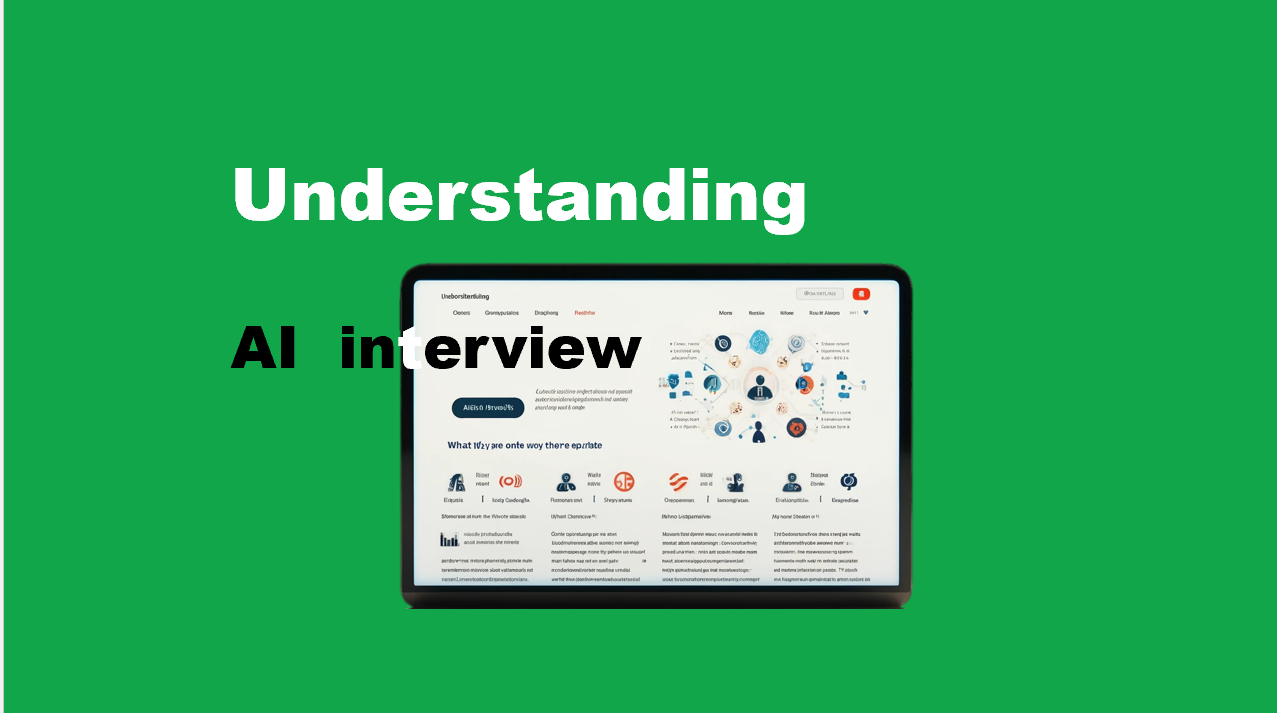For a long time, making a good impression on a recruiter was your primary goal during an interview. Today, there’s a new aspect to consider: impressing an algorithm. Many companies now use artificial intelligence (AI) interview technology to streamline their hiring processes and increase efficiency.
But what does this mean for you as a job seeker? It can mean various things, including benefits and some drawbacks. However, with the right preparation, you can still make a winning impression during your AI interview.
What Are AI Interviews? AI interviews use artificial intelligence to assess job candidates, significantly reducing the time and effort required from human recruiters. Typically, you answer automated questions in front of a screen, and AI algorithms analyze your responses. AI is mainly used during the initial round of interviews to narrow down candidates for recruiters and hiring managers to interact with personally.
Benefits of AI Interviews The main advantage of AI interviews is that they make the recruitment process quicker and more efficient. Employers can swiftly sift through applicants to find the best candidates more accurately. With popular jobs receiving hundreds of applications, manually screening applicants creates a significant bottleneck.
As a job seeker, you benefit from a faster hiring process, knowing sooner whether to move on to other opportunities or delve deeper into company research and interview preparation. AI interviews also help eliminate bias and contribute to a fairer hiring process by focusing on qualifications and avoiding human preconceptions.
Additionally, AI interviews are flexible, allowing you to schedule interviews at convenient times without worrying about misaligned schedules. AI doesn’t take vacations, sick days, or lunch breaks.
Drawbacks and Concerns About AI Interviews Despite the benefits, AI interviews have drawbacks. AI systems, which learn from existing data, can perpetuate human biases and potentially violate antidiscrimination laws. This can lead to discriminatory hiring practices rather than eliminating them.
Another concern is the interpretation of human emotions by AI systems. AI might misinterpret facial expressions, body language, or vocal inflections, potentially leading to unfair judgments. Ethical issues, privacy, and data security are also significant concerns when using AI in hiring processes.
AI is here to stay and will continue to improve. According to SHRM, 83% of U.S. employers already utilize some form of automation in their hiring process. Understanding how AI interviews work and how to best prepare for them is essential for job seekers.
How Do AI Interviews Work? Currently, two main types of AI interview platforms exist, each affecting your experience differently:
- AI Assessments: These systems analyze video interviews using AI technology, assessing candidate responses based on verbal and nonverbal cues.
- Conversational HR Chatbots: AI chatbots facilitate the interview process by guiding candidates through questions and tasks, screening them without human involvement initially.
Components and Features of AI Interviews:
- Automated Question Generation: AI interview systems generate questions based on job requirements, ensuring consistency and relevance for each candidate.
- Real-Time Analysis: AI algorithms analyze verbal and nonverbal responses in real-time, including measuring response time, speech patterns, and facial expressions.
- Predictive Analytics: AI interview platforms may use predictive analytics to match candidates with jobs based on their behavior and responses.
- Employee Performance Tracking: Integrating AI interviews with performance management systems allows employers to track new hires’ success and refine recruitment processes.
How Do You Prepare for an AI Interview? Thorough preparation can significantly increase your chances of success. Here are a few tips specific to AI interviews:
- Research the Company and Review the Job Description: Understand the company culture, values, and mission to tailor your responses accordingly.
- Prepare for Common Questions: Align your tone and responses with targeted keywords, and be ready for puzzles or coding challenges if applying for technical roles.
- Familiarize Yourself With the AI Platform: Research the AI tools used in your interview and practice with any available demo versions or tutorials.
- Practice Speaking Clearly and Concisely: Record yourself answering common questions and refine your body language and facial expressions.
- Test Your Internet and Technology in Advance: Ensure your equipment works properly to avoid technical issues during the interview.
- Plan Your Attire: Dress appropriately to boost your confidence and professionalism.
Master AI Interviews While AI adds complexity to your job search, the principles that help you stand out in human-led interviews also apply. Research the company, infuse your communications with keywords from the job ad, and prepare thoroughly for the interview. These habits will help you succeed, whether your interviewer is human or not.
Introduction to an Online AI Tool for Interviewees: In today’s competitive job market, innovative AI tools have become essential for job seekers. These tools offer real-time answers to interview questions, leveraging advanced AI to provide expert responses instantly. They also include customized mock interviews tailored to your resume and career goals, complete with detailed performance feedback. With special discounts and premium membership giveaways, these AI-powered solutions aim to make high-quality interview preparation accessible to everyone, helping candidates boost their confidence, improve their performance, and increase their chances of landing their dream job.
